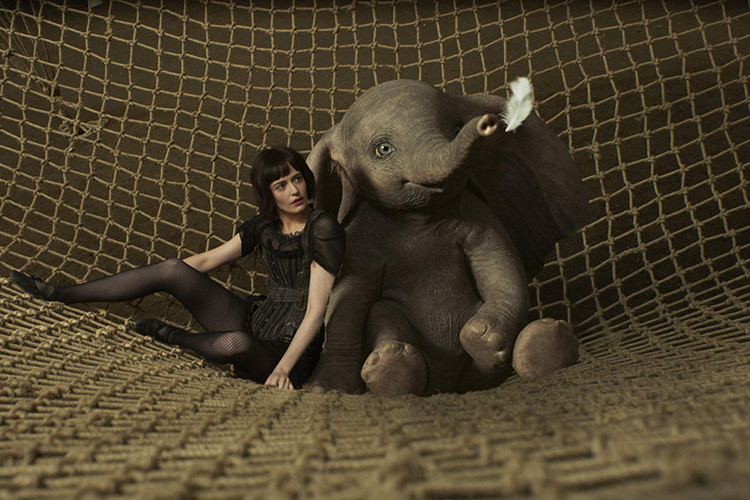Here’s a little piece of film history: the animated Dumbo came out in 1941, and it was the fourth Disney movie ever made. Here’s another piece of film history: Disney used to be an underdog.
Until a Supreme Court decision in 1948, five movie studios—20th Century Fox, RKO, Paramount, Warner Bros., and MGM—completely dominated Hollywood. The “Big Five” studios controlled every stage of production, distribution, and exhibition for their movies, which essentially meant that they owned everything from filmmakers to theater chains. It was a film industry oligopoly, which made it difficult for smaller studios to break into the business.
Believe it or not, Disney used to be one of those smaller studios. Walt Disney campaigned against the Hollywood monopolies alongside independent artists like Charlie Chaplain. Their biggest victory came in 1948, when the Supreme Court ruled to break up the Big Five studios by appealing to U.S. antitrust laws. In this fairer environment, Disney was able to move past modest hits like Dumbo and produce cultural sensations like Cinderella.
Now, it’s 78 years after the original Dumbo, and a live-action remake is coming from Disney—but they’re not the underdog that they were in 1941. Disney has become the giant monopoly dominating the film industry. Modern studios monopolize by buying out the little guys, and nobody has been more ruthless in that regard than Disney: they churn out samey movies that are built for mass consumption, sell billions of movie tie-ins and paraphernalia, and then buy the studios that aren’t as profitable. That’s how Disney owns and operates Pixar, Lucasfilm, Marvel Entertainment, and most recently 20th Century Fox (after a 71.3 billion dollar deal). This matters because it kills original art. Immediately after obtaining 20th Century Fox, Disney shut down Fox 2000, a mid-budget Fox division that produced imaginative movies like Fight Club, Life of Pi, and Love, Simon.
So, instead of movies like those, we’re going to get more movies like the 2019 Dumbo reimagining. Is this a worthy tradeoff?
It’s a reassuring sign to see Tim Burton’s name attached to the project, but it’s clear that he’s merely working as a director-for-hire. Burton’s visual signature is unmistakable: the quaint homogeny of Edward Scissorhands’ suburbia; the gothic Gotham of his version of Batman; the zany expressionism of Beetlejuice. When Burton has creative control, his movies look unmistakably him. In Dumbo, he’s only around so that things look colorful or out of the ordinary here and there. Dumbo occasionally features an inspired visual moment, but otherwise, this could be anybody’s pale imitation of Burton.
How’d the story turn out? Only the first act of Dumbo is anything like the 1941 iteration; the rest is new material from the mind of Ehren Kruger, the screenwriter behind the third, fourth, and fifth Transformers movies. Dumbo is almost as grating and unoriginal as those robot smorgasbords. Kruger crams in Disney clichés that the animated Dumbo didn’t even have, like the two central children having a dead mother. The movie repeatedly reminds us that the daughter wants to be scientist, despite her intellect barely having any bearing on the plot. Every beat is focus-tested and familiar.
The two child actors are, apparently, incapable of displaying emotion. No matter what is happening—their father coming home from war, an elephant flying, mortal danger—they’re staring ahead with dead eyes. It’s like Dumbo stars the twins from The Shining. Other actors, principally Danny DeVito and Alan Arkin, at least have a little fun with their roles. The eponymous elephant steals what’s left of the show: CGI Dumbo is sculpted for maximum cuteness, which works on a primordial level. It’s a hard effect to ignore.
Perhaps the most baffling thing about Dumbo is the movie’s villain. He’s a wealthy magnate in the entertainment business, he owns a theme park, and he repackages wholesome things in order to make a shameless profit. It’s nigh impossible that Disney is capable of such a scathing self-indictment. Did the studio just miss the message as they rushed Dumbo through production? That’s more likely. Are they trying to rebrand themselves as well-meaning underdogs in a corporate world, flimsily masking their villainous true identity? That’s most likely.
★½ (1.5/5)




